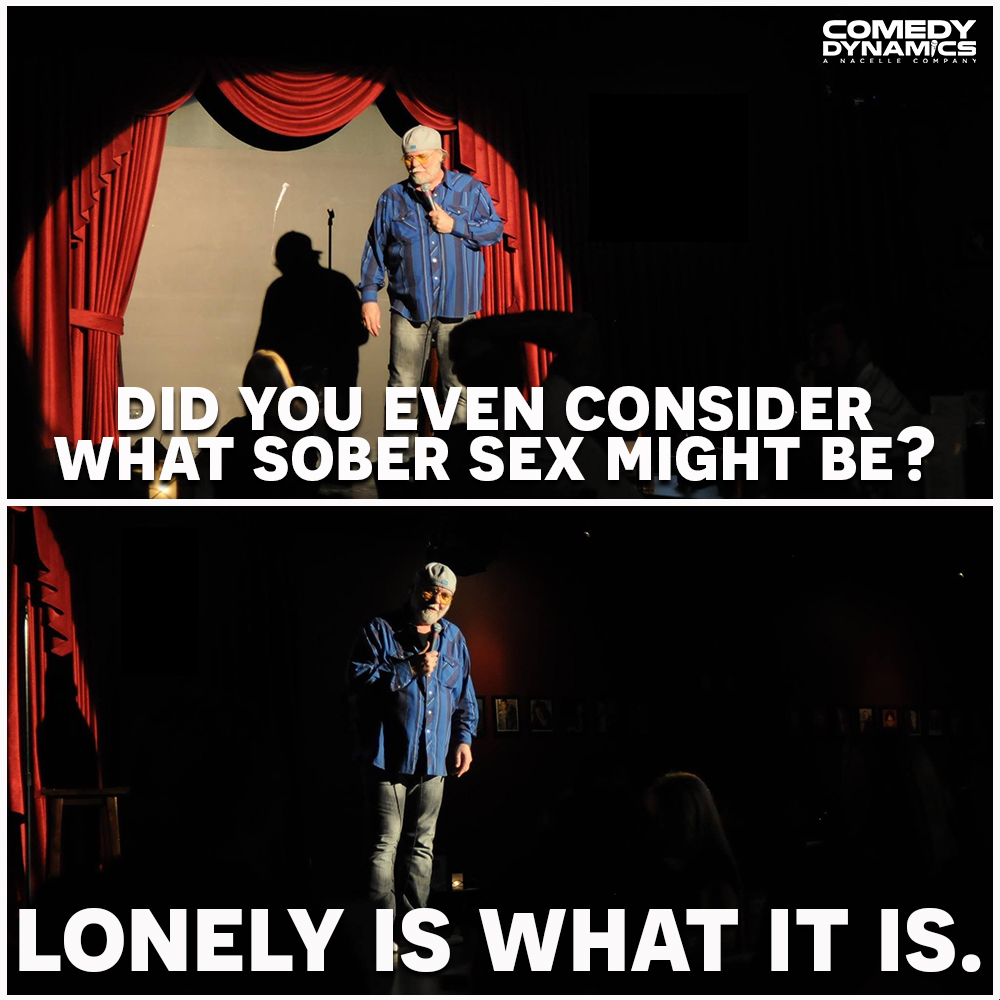An insightful examination of the high price of laughs


Even in most ideal situations, career paths rarely go in a straight line. Few know this better than Canadian comedian Richard Lett, whose professional endeavors mirrored his personal life’s inconsistency. And for seven years, filmmaker Roy Tighe documented the highs and the lows.
“Never Be Done: The Richard Glen Lett Story” chronicles the once successful standup’s struggles with alcohol and drugs and himself.

After a chance meeting with Lett in 2009, Tighe, who had experience producing comedy videos, decided to collaborate on a filmed special. That partnership was interrupted, when one night at a nightclub where Lett was to perform, they were ceremoniously thrown out. The brash and often disagreeable Lett exposed his darker side in an argument with the club’s management.
Undaunted, Tighe kept his camera running outside club. Lett, perpetually under the influence, stands unsteady on the sidewalk and, in between puffs on a cigarette, delivers an epic poetry slam. Thus, for most of us, it begins our introduction to a unique, caustic, obsessive personality.
Over the next seven years, Tighe, and his small crew, capture a personal break down. Conflicts with audience members often punctuate Lett’s raging, expletive-filled stage routines. In addition to being drunk during gigs, the abrasive performer’s attitude was consistently negative.

For better or worse, Lett effectively heckled the hecklers. And in one telling scene in Tighe’s insightful film, Lett’s seething anger and lack of self-control get the best of him. By tearing into a woman in the audience, Lett becomes decidedly unfunny. The woman leaves in tears, and Lett’s career continues a downward slide.
Tighe gets remarkable access to this talented man in crisis. The cameras go into Lett’s apartment, where there is definite evidence of mania. Days and days on end looking for his next fix exacted a significant toll. His wrecked living condition reflects his broken lifestyle.
As things get ever darker, Lett turned to his tweenish daughter, Breanna, for support. The happy little girl adores her father, even though she cannot ignore his obvious decline. It’s this relationship that offers hope. Despite so many broken bridges, Lett is lucky enough to have someone who loves him. We should all be so lucky.
“Never Be Done” tracks Lett’s fall intimately. As bills pile up and his health fails him, he must vacate his apartment. Things are so bad that Lett enlists help to clean his place in hopes of return of his security deposit. These tedious, but authentic scenes show a man at the end of his rope. It’s sadder than sad.

As depression and hopelessness sets in, Tighe stays with his subject and, over the years, checks in on Lett, who slowly begins a turnaround. After receiving some mental health treatment and devoting himself to Alcoholics Anonymous, Lett starts to behave more rationally. The main question is: can he be funny sober?
Unfortunately, the story told in “Never Be Done” is a familiar one. And many of these cautionary tales end badly. What’s special about this inspiring documentary is that we see the entire spectrum—the dark to light.
While comedy gave so much to Lett, it also took much from him. And returning to the stage without the artificial enhancement of drugs and alcohol might not be possible.
“Never Be Done” is a harsher, more sincere examination of an entertainer’s decline and possible redemption than the challenging and heavily manipulated “The Amazing Jonathan Documentary.” Tighe gives us the straight story, warts and all. And that story is a hard but essential watch.
